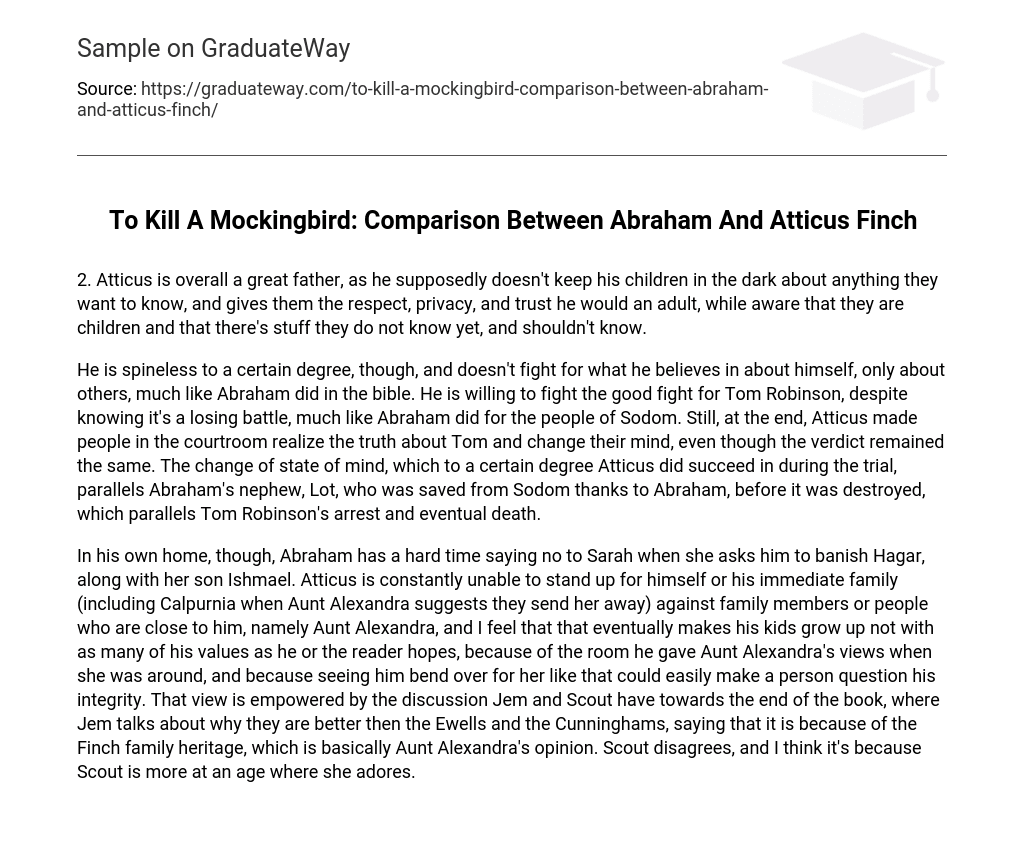2. Atticus is overall a great father, as he supposedly doesn’t keep his children in the dark about anything they want to know, and gives them the respect, privacy, and trust he would an adult, while aware that they are children and that there’s stuff they do not know yet, and shouldn’t know.
He is spineless to a certain degree, though, and doesn’t fight for what he believes in about himself, only about others, much like Abraham did in the bible. He is willing to fight the good fight for Tom Robinson, despite knowing it’s a losing battle, much like Abraham did for the people of Sodom. Still, at the end, Atticus made people in the courtroom realize the truth about Tom and change their mind, even though the verdict remained the same. The change of state of mind, which to a certain degree Atticus did succeed in during the trial, parallels Abraham’s nephew, Lot, who was saved from Sodom thanks to Abraham, before it was destroyed, which parallels Tom Robinson’s arrest and eventual death.
In his own home, though, Abraham has a hard time saying no to Sarah when she asks him to banish Hagar, along with her son Ishmael. Atticus is constantly unable to stand up for himself or his immediate family (including Calpurnia when Aunt Alexandra suggests they send her away) against family members or people who are close to him, namely Aunt Alexandra, and I feel that that eventually makes his kids grow up not with as many of his values as he or the reader hopes, because of the room he gave Aunt Alexandra’s views when she was around, and because seeing him bend over for her like that could easily make a person question his integrity. That view is empowered by the discussion Jem and Scout have towards the end of the book, where Jem talks about why they are better then the Ewells and the Cunninghams, saying that it is because of the Finch family heritage, which is basically Aunt Alexandra’s opinion. Scout disagrees, and I think it’s because Scout is more at an age where she adores.





